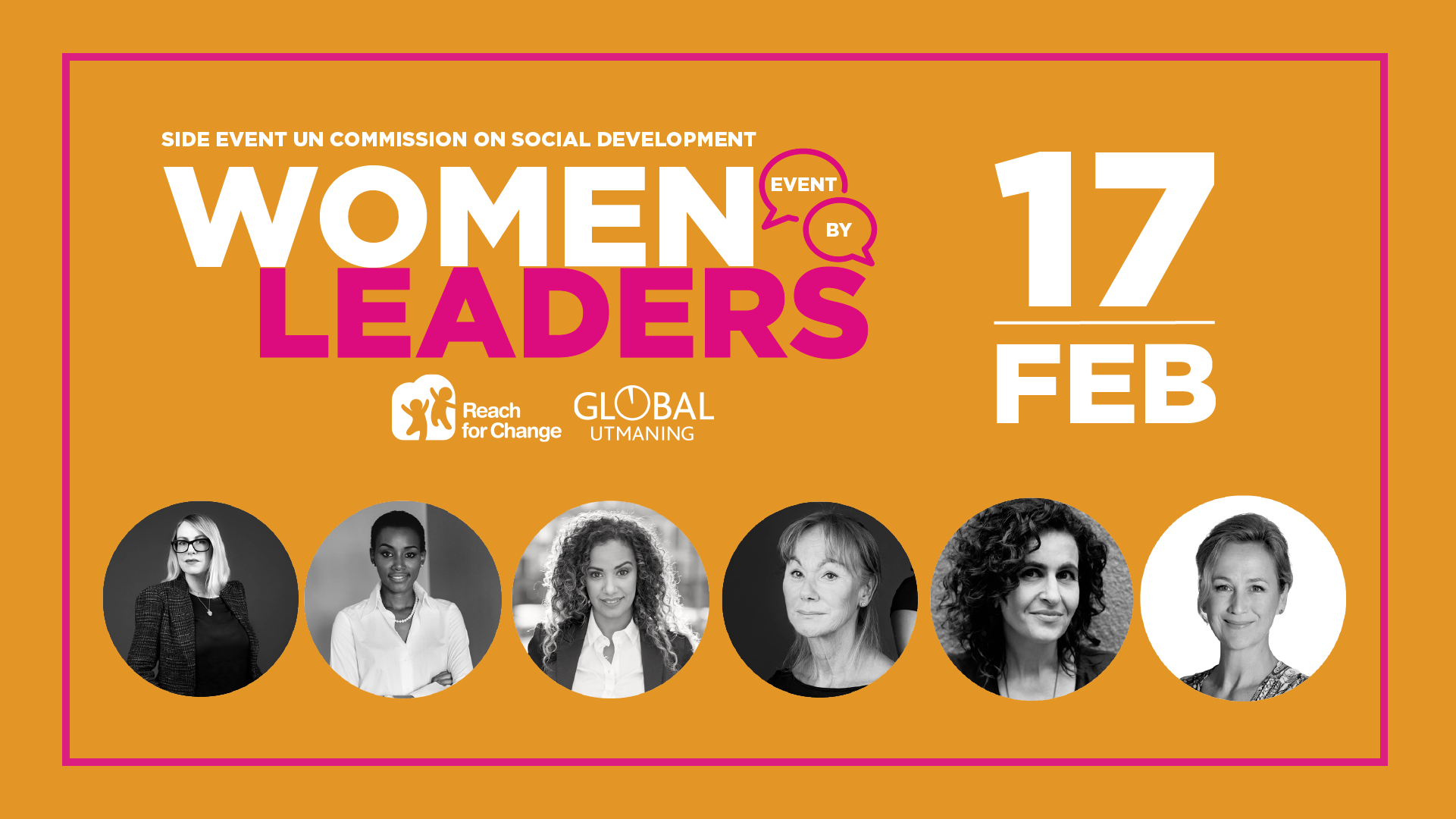
During the 59th UN Commission on Social Development on Wednesday, February 17, 2021, the Swedish think tank Global Utmaning hosted a panel discussion on the importance of social entrepreneurship for a just transition, in partnership with Reach for Change. A mapping of structural obstacles for female social entrepreneurs has previously been done within the Women Leaders initiative. This served as a starting point for the dialogue with the panel of investors, social entrepreneurs and civil society, who shed light on structural obstacles for female social entrepreneurs and explored the innovative power of social entrepreneurship. Catarina Rolfsdotter-Jansson, Chairwoman of the Board for Global Utmaning, moderated the virtual dialogue and the panel of speakers were Nancy Sumari, Social Entrepreneur Jenga Hub; Nora Bavey, General Partner Unconventional Venture; Sofia Breitholtz, CEO Reach for Change and Leila El-Sherif Wollheim, Project Manager at the secretariat of the Swedish National Coordinator for the 2030 Agenda.
The speakers were given the opportunity to discuss how social entrepreneurship further can be accessed as a tool for innovation and be a way of implement the 2030 Agenda locally. They delved into discussions about the unequal distribution of capital, the need of femla ownership, innovation and experimentation in social enterprising, education for both institutional and private investors, and the importance of intersectionality in order to enable structural change.
The knowledge about the start-up scene and entrepreneurship in general has been low. The speakers stated that this has led to a continued low understanding, especially among policymakers, of what entrepreneurship really means for society and how important it is for creating change. Only when entrepreneurship is seen as the agent of change that it is, will female entrepreneurship be truly valued.
soma order online
cheap xanax online
tramadol buy online
cbd oil online
The panel emphasized that there is a responsibility among policy makers to address the issue of resource distribution and institutional investors have to promote gender equality, leading the private capital by example. For the social sector to truly become the power of change that it ought to be, innovation and diversity needs to be promoted. Investments done in the social sector should encourage experimentation and local solutions. In addition to this the panel agreed that intersectionality is key when building new and inclusive structures. Building the new requires further educational efforts for institutional investors, policy makers and the private sector, about the value of gender equality and social entrepreneurship in the work towards achieving the 2030 agenda.

For more information, please visit: https://www.globalutmaning.se/women-leaders-csocd59/ and https://www.globalutmaning.se/femalesocialentrepreneurs/
 Welcome to the United Nations
Welcome to the United Nations